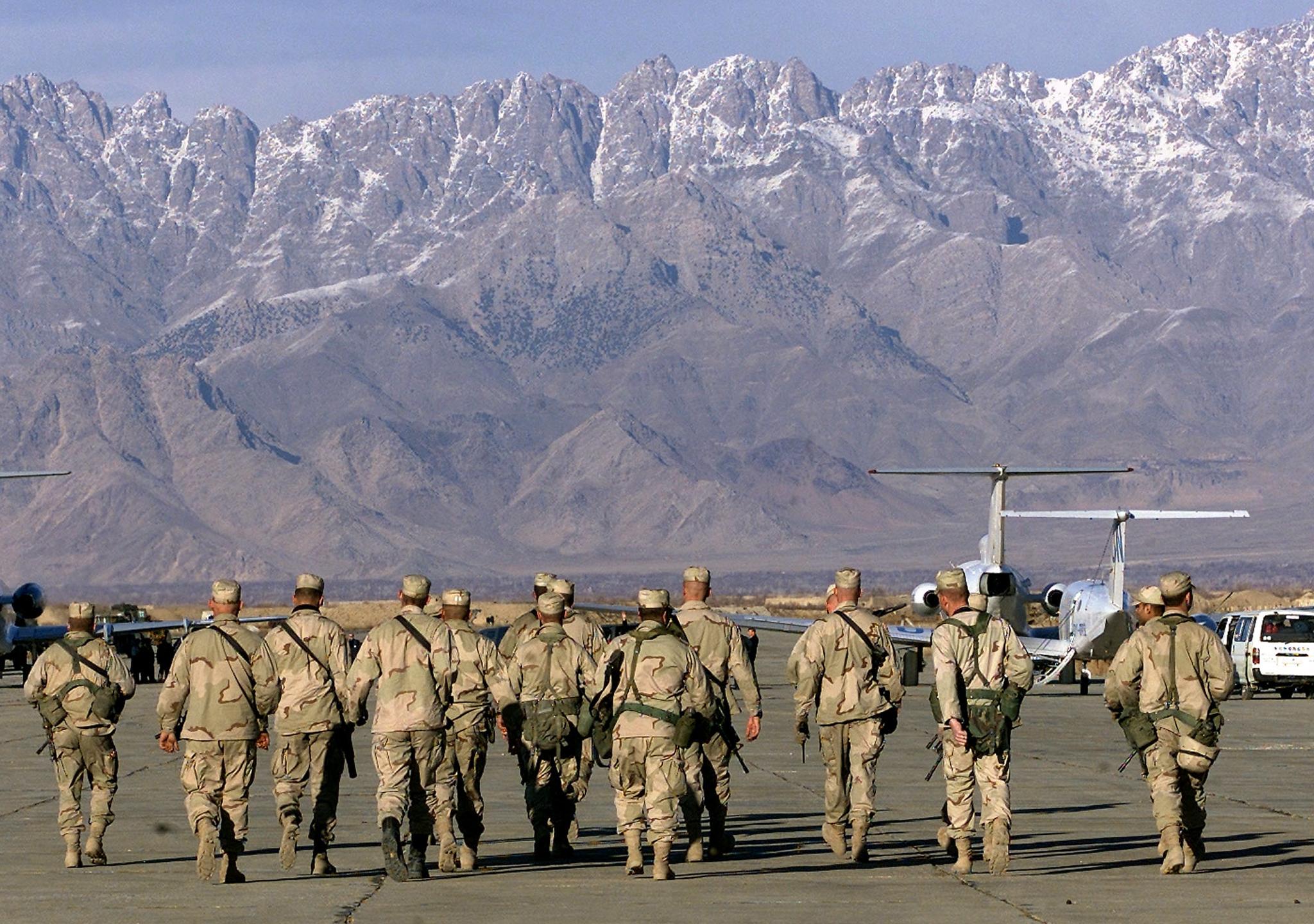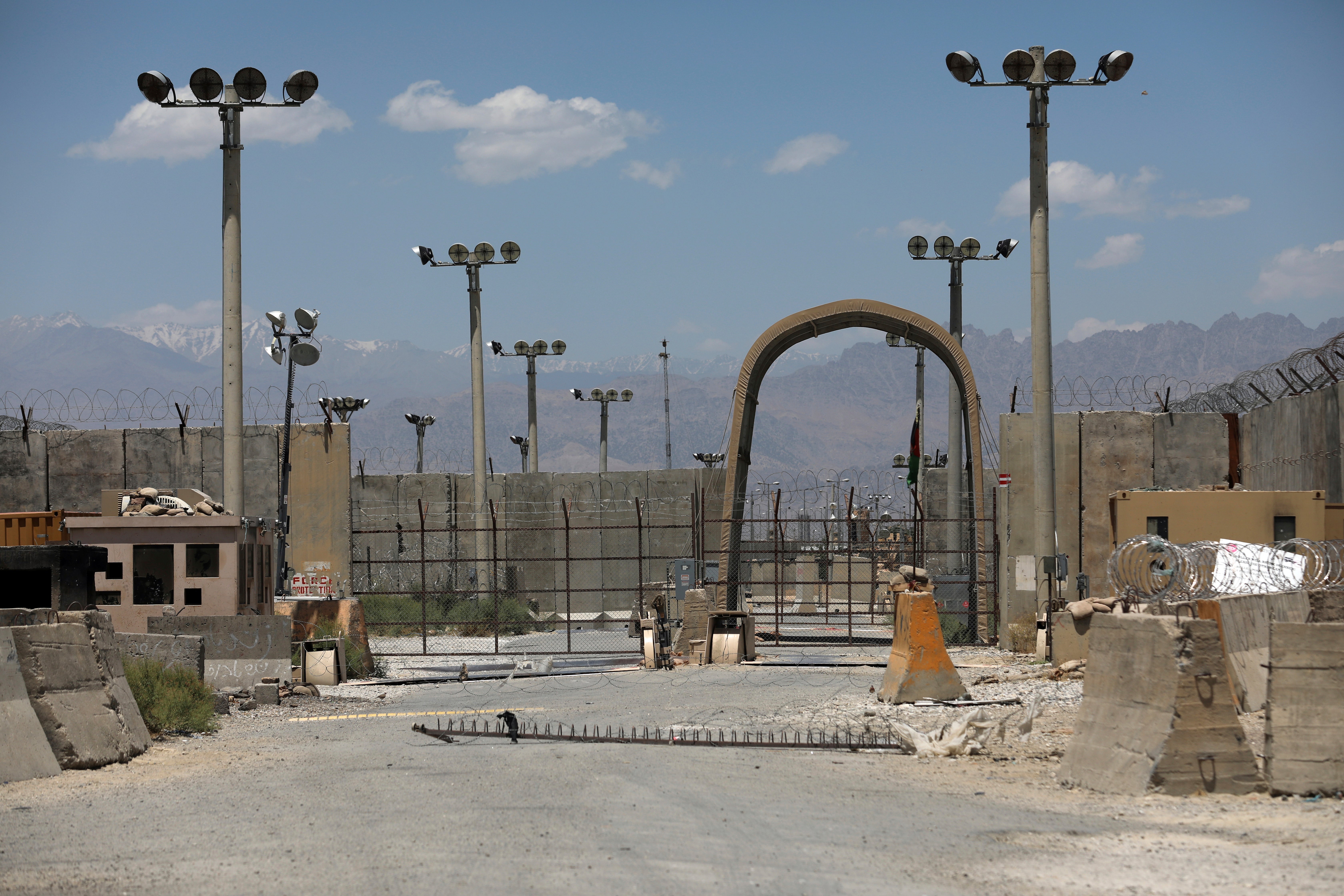US and Nato forces leave Bagram base in historic handover after 20 years of war in Afghanistan
The airbase was the heart of foreign military power in the nearly two-decade-old war

Your support helps us to tell the story
From reproductive rights to climate change to Big Tech, The Independent is on the ground when the story is developing. Whether it's investigating the financials of Elon Musk's pro-Trump PAC or producing our latest documentary, 'The A Word', which shines a light on the American women fighting for reproductive rights, we know how important it is to parse out the facts from the messaging.
At such a critical moment in US history, we need reporters on the ground. Your donation allows us to keep sending journalists to speak to both sides of the story.
The Independent is trusted by Americans across the entire political spectrum. And unlike many other quality news outlets, we choose not to lock Americans out of our reporting and analysis with paywalls. We believe quality journalism should be available to everyone, paid for by those who can afford it.
Your support makes all the difference.The last of the US and Nato forces have left the Bagram airbase, the epicentre of the foreign mission in Afghanistan, in a historic handover that signalled the culmination of a nearly two-decade-old war in the country.
The handover of Afghanistan’s largest airfield to the Afghan National Security and Defence Force took place without any fanfare, two US officials confirmed to the Associated Press on Friday.
Afghan broadcaster 1TV also confirmed the pullout of troops from the base, citing a US military spokesperson who was not named. A military official said the top US commander in Afghanistan, General Austin S Miller, “still retains all the capabilities and authorities to protect the forces”.
More than 100,000 foreign troops passed through the airbase, just an hour’s drive north of Kabul, at the peak of the war.
It was initially found in ruins with blast-ravaged walls and grounds gouged by rockets and shells, when US and Nato forces arrived in 2001. However, it soon became the heart of the America’s longest mission in the country, converting it into a mini-city with two runways, hospitals, fitness centres and fast-food restaurants.
It was also the main target of numerous attacks – including suicide bombings and rocket strikes – by the Taliban.

The US has not yet revealed when the last set of its troops will leave Afghanistan due to security concerns and because of negotiations over the protection of capital Kabul’s Hamid Karzai International Airport. A security cover comprising US and Turkish soldiers under the Resolute Support Mission (RSM) currently looks after the airport. RSM is a Nato-led mission that is in the process of winding down.
Some US troops, however, will remain in Afghanistan to protect the US embassy in Kabul.
US and Nato allies launched nearly 20 years of military operations in Afghanistan, as part of an emergency response to the deadly 11 September 2001 attacks on US soil, to remove the Taliban from power and eliminate the terror outfit al-Qaeda.
Washington and the Taliban signed a peace agreement in February 2020 after years of stalled talks. The agreement stipulated the withdrawal of forces in exchange for a Taliban guarantee to cease violence and ensure the country would not become a safe haven for terrorists.
Join our commenting forum
Join thought-provoking conversations, follow other Independent readers and see their replies
Comments